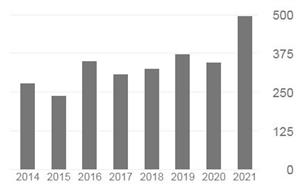The Effect of MTAD, an Endodontic Irrigant, on Fibroblast Attachment to Periodontally Affected Root Surfaces: A SEM Analysis
Background: Root surface debridement (RSD) is necessary to create an environment suitable for reattachment of the periodontium. Root surface conditioning may aid the formation of a biocompatible surface suitable for cell reattachment. BioPure™ MTAD (mixture of Doxycycline, citric acid and a detergent) is an endodontic irrigant with antibacterial properties and the ability to remove smear layer. It was hypothesized that MTAD may be useful for root surface conditioning. The efficacy of MTAD as a conditioner was measured by examining fibroblast attachment to root surfaces. Materials and Methods: Thirty‑two specimens of human teeth with advanced periodontal disease were used. The surfaces were root planed until smooth. Half of the specimens were treated with 0.9% saline and the other samples with Biopure MTAD. As a negative control group, five further samples were left unscaled with surface calculus. Human gingival fibroblast cells HGF1‑PI1 were cultured and poured over the tooth specimens and incubated. After fixation, the samples were sputter‑coated with gold and examined with a SEM. The morphology and number of attached, fixed viable cells were examined. The data was analysed using the Mann‑Whitney‑U statistical test. Results: There was no significant difference between the numbers of attached cells in the experimental group treated with MTAD and the control group treated with saline. Little or no attached cells were seen in the negative control group. Conclusion: RSD created an environment suitable for cell growth and attachment in a laboratory setting. The use of MTAD did not promote the attachment and growth of cells on the surface of human roots following RSD.














